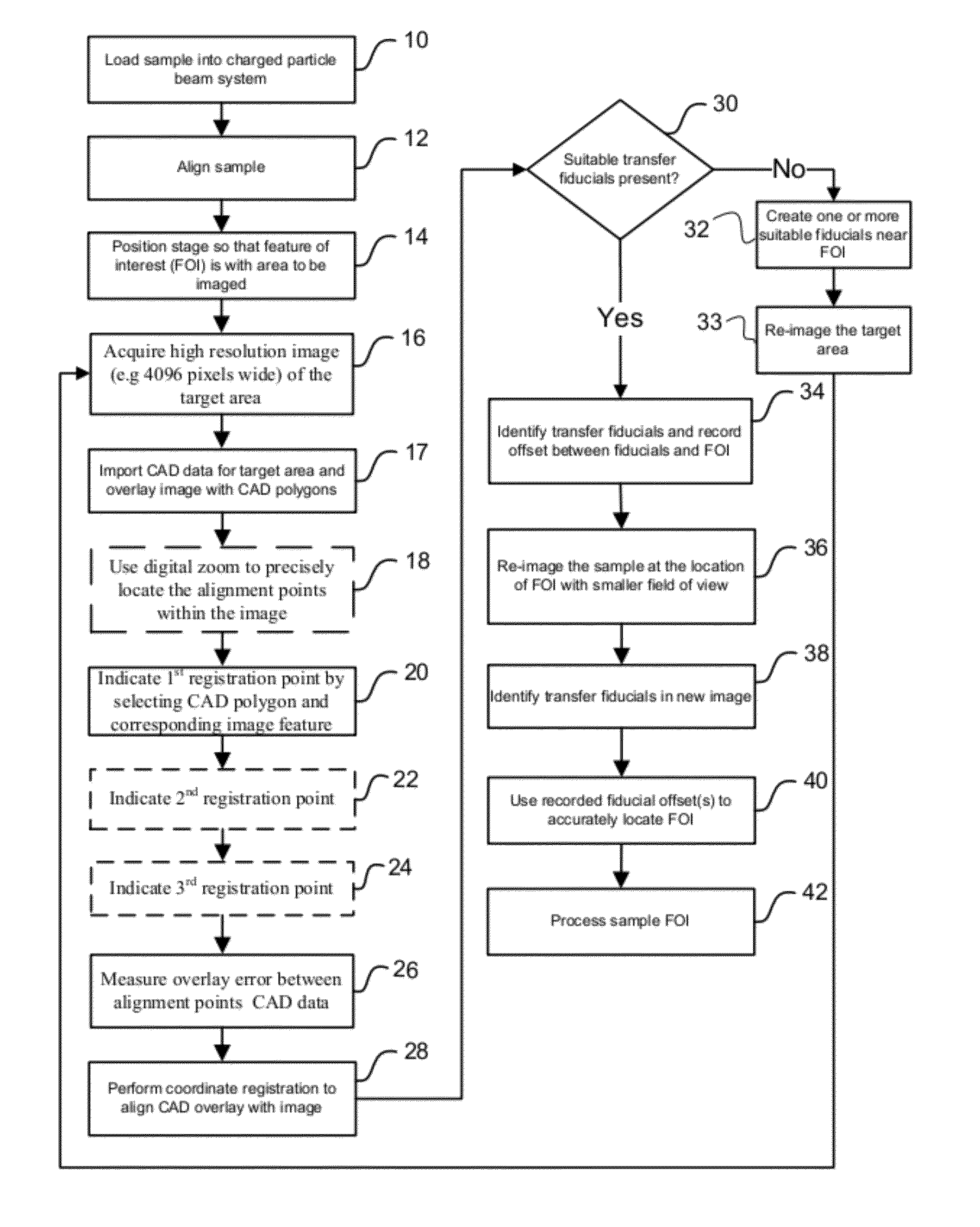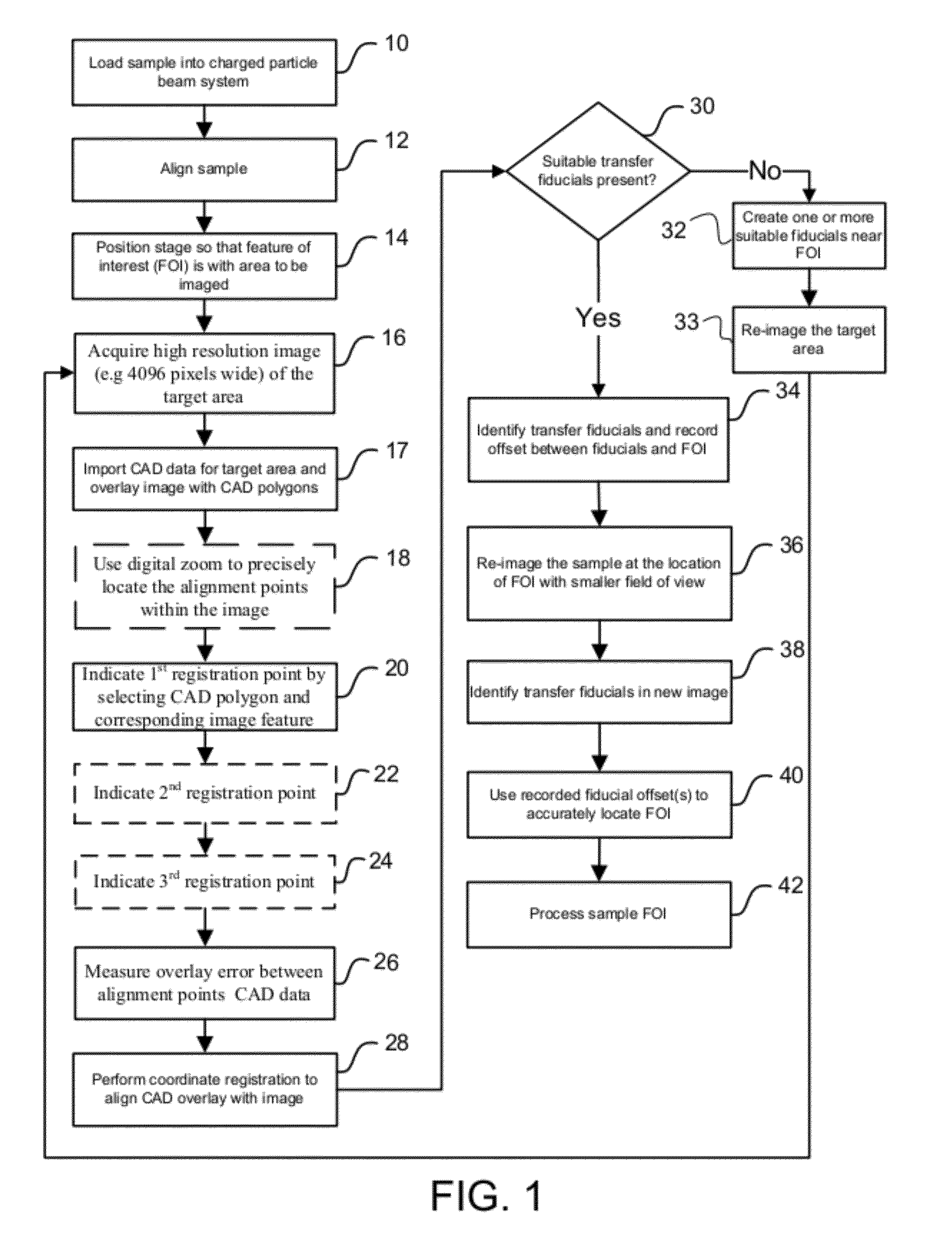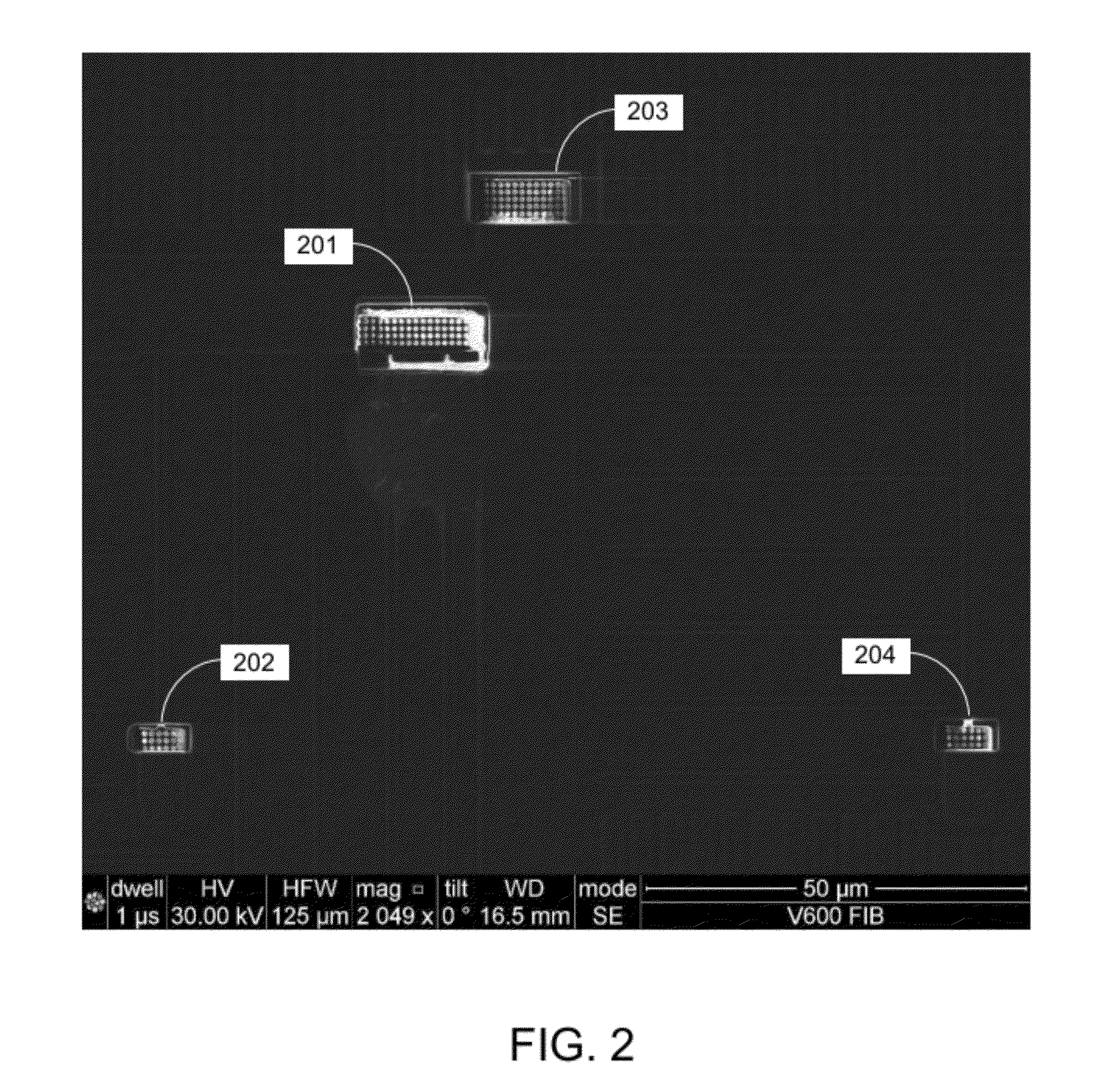High Accuracy Beam Placement for Local Area Navigation
a local area and beam technology, applied in the direction of semiconductor/solid-state device testing/measurement, image enhancement, instruments, etc., can solve the problems of sample drift in the beam shift navigation system, adversely affecting the performance of the finished semiconductor device, and small margin of error in processing, etc., to achieve high accuracy
- Summary
- Abstract
- Description
- Claims
- Application Information
AI Technical Summary
Benefits of technology
Problems solved by technology
Method used
Image
Examples
Embodiment Construction
[0033]Preferred embodiments of the present invention are directed at methods for high accuracy beam placement for local area navigation in the field of semiconductor chip manufacturing. This invention demonstrates a method where high accuracy navigation to the site of interest within a relatively large local area (e.g. an area 200 μm×200 μm) is possible even where the stage / navigation system is not normally capable of such high accuracy navigation.
[0034]According to preferred embodiments of the present invention, a high-resolution image of a relatively large target area (a larger area including the location of a feature of interest and one or more suitable alignment marks) is first acquired. For example, a suitably high-resolution area might be 250 μm wide with a resolution approximately 4096 pixels wide. According to one preferred embodiment, the area of interest is overlaid with CAD polygons and a two or three point CAD polygon re-registration is performed. Digital zoom is then ut...
PUM
 Login to View More
Login to View More Abstract
Description
Claims
Application Information
 Login to View More
Login to View More - R&D
- Intellectual Property
- Life Sciences
- Materials
- Tech Scout
- Unparalleled Data Quality
- Higher Quality Content
- 60% Fewer Hallucinations
Browse by: Latest US Patents, China's latest patents, Technical Efficacy Thesaurus, Application Domain, Technology Topic, Popular Technical Reports.
© 2025 PatSnap. All rights reserved.Legal|Privacy policy|Modern Slavery Act Transparency Statement|Sitemap|About US| Contact US: help@patsnap.com



